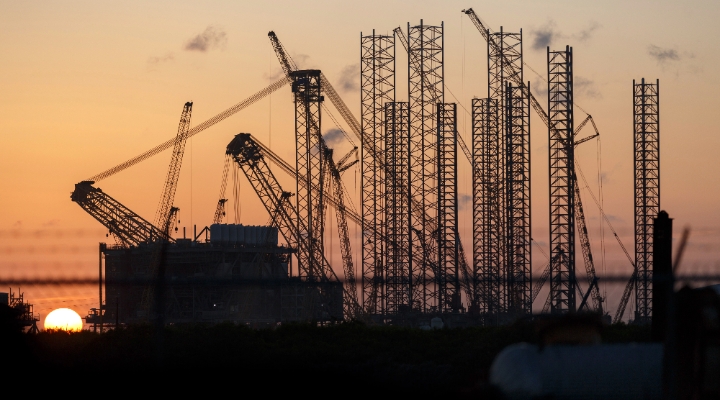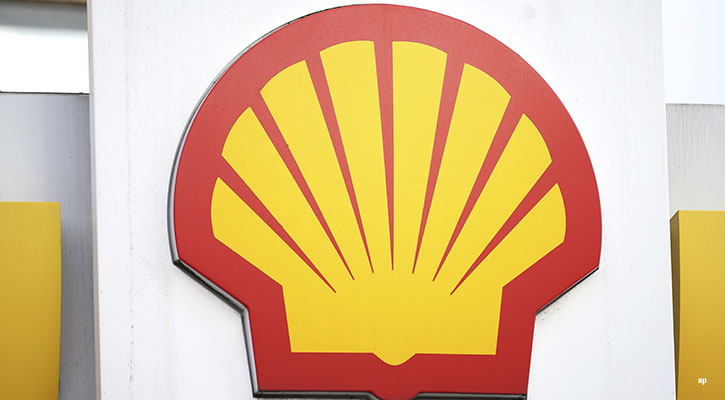
Interest in energy should be heating up again, but alas it's not that simple.
Despite a good third quarter, in which energy stocks gained 13.3% (Morningstar Global Energy index, in EUR), against -0.78% of the benchmark (Morningstar Global index), the sector energy lost almost 8% in the first two months of the fourth quarter (vs +4.3% recorded by the benchmark).
Today, around 31% of the energy stocks covered by Morningstar are trading at a 17% discount rate compared to fair value. That means there are plenty of investment opportunities in the energy sector, even among quality companies.
What's The Deal With Iran?
If there are opportunities out there, though, why are investors selling?
One reason is concern about oil demand expectations in the short-term. According to Morningstar analysts, lower demand for gasoline will have a negative impact on oil demand in 2024, and this is due mainly to lower consumption in the US. The US Energy Information Administration estimates for 2024 oil demand is at its lowest for 20 years.
There are several reasons that explain this data: an increase in remote working for one; improving car energy efficiency; the adoption of electric vehicles; and higher oil prices. On top of that, Chinese demand is not sufficient to compensate for lower oil consumption in North America, right now. Its own economy is threatened by deflation and by a real estate crisis.
The other main concern is about the supply side.
"Going into the third quarter [of 2023], the market was extremely concerned about oil supply running out after the 2.3 million barrels per day reduction in global oil reserves," says Stephen Ellis, equity strategist for Morningstar.
"But in the fourth quarter expectations are for an increase in oil reserves compared to the previous three months. Furthermore, the contributions to supply by Venezuela and Iran are now clearer.
"We believe Venezuela is one of the few regions that has the potential to increase oil production and to ease the current supply crisis," Ellis adds.
"In this sense, diplomatic activity by the US and the European Union seems to be bearing fruit. Recently, the Venezuelan government announced an agreement with opposition groups to hold the elections in 2024.
"In exchange, the US is suspending restrictions on Venezuela's trade in gold, oil and bonds, and the EU is accelerating its process of reviewing sanctions against Caracas (from every 12 to every six months) so that they can be suspended more easily".
With Iran, furthermore, investors were concerned about the potential involvement of Tehran in the Israeli-Hamas conflict, but to date that has not occurred. If the status quo holds, Morningstar analysts say there should be no repercussions for crude oil. Iran will remain a special observer, however, as one the few countries capable of increasing the global oil supply.
What's Happening to The Gas Market?
When it comes to gas, Morningstar analysts believe investors continue to focus on meaningful variables, and, in particular, potential interruptions to gas supply, a sharp drop in temperatures during winter months, and the possible repercussions of the Israeli-Hamas war.
"Up to now, EU gas stock levels are essentially 100% full and so Europe will be able to cope with the winter," Ellis says.
"Despite this, EU gas prices and spreads have continued to be volatile. In our opinion, the impact of the current tensions in the Middle East on the gas market are irrelevant, but we anticipate that the gas price will continue to be volatile until the end of 2024, when the new supply of liquefied natural gas from the US will be added."
Where Are The Investment Opportunities in Energy?
Name: Exxon Mobil
Ticker: XOM
Morningstar Rating: 4 Stars
Fair value estimate: $123 (£97.19)
Exxon has lost over 7% year to date (as of 14 December 2023 in EUR) and is discounted about 20% compared with its fair value of $123 (report updated as of 8 December 2023).
By 2027, Exxon expects to double profits and cash flows from those recorded in 2019 thanks to the combination of three factors: structural reduction of operating costs, improvements in the asset portfolio and revenue growth.
Over the course of the past quarter, the company achieved its $9 billion cost savings target ahead of schedule, it paid $3.7 billion in dividends and repurchased $4.4 billion in stock. It also raised its fourth-quarter dividend by 4%, to $0.95. It plans to repurchase about $17.5 billion in shares in 2023.
Name: Equitrans Midstrean
Ticker: ETRN
Morningstar Rating: 4 Stars
Fair value: $15
Although Equitrans Midstrean rose 54% since the beginning of the year (as of 14 December 2023 in EUR), the stock is still discounted about 30% compared to its fair value of 15 USD (report updated to 1 December 2023).
The Mountain Valley Pipeline project is getting closer to commissioning and will result in a significant improvement in the company's bottom line. Morningstar analysts expect about $390 million in incremental EBITDA, which would be roughly a 40% increase over Equitrans's 2023 EBITDA of around $1 billion.
They also consider the MVP can be expanded 500 million cubic feet per day for very little cost, which would add an incremental $55 million in EBITDA.
Title: APA
Ticker: APA
Morningstar Rating: 4 Stars
Fair value: 56 USD
APA is active in the oil and gas exploration and production industry. The company operates primarily in the US, Egypt, the North Sea and Suriname, and its proven reserves stood at 890 million barrels of oil at the end of 2022. APA has large drilling opportunities in the Permian Basin, which will allow the company to increase production at low costs.
But it's the asset in Suriname that best represents a potential turning point for APA, as it could allow the company to double its production in the next 10 years. The stock is down 23% since the beginning of the year (as of 14 December 2023 in EUR). It's now discounted by approximately 40% compared to its fair value of 56 USD (report updated as of 2 November 2023).





























